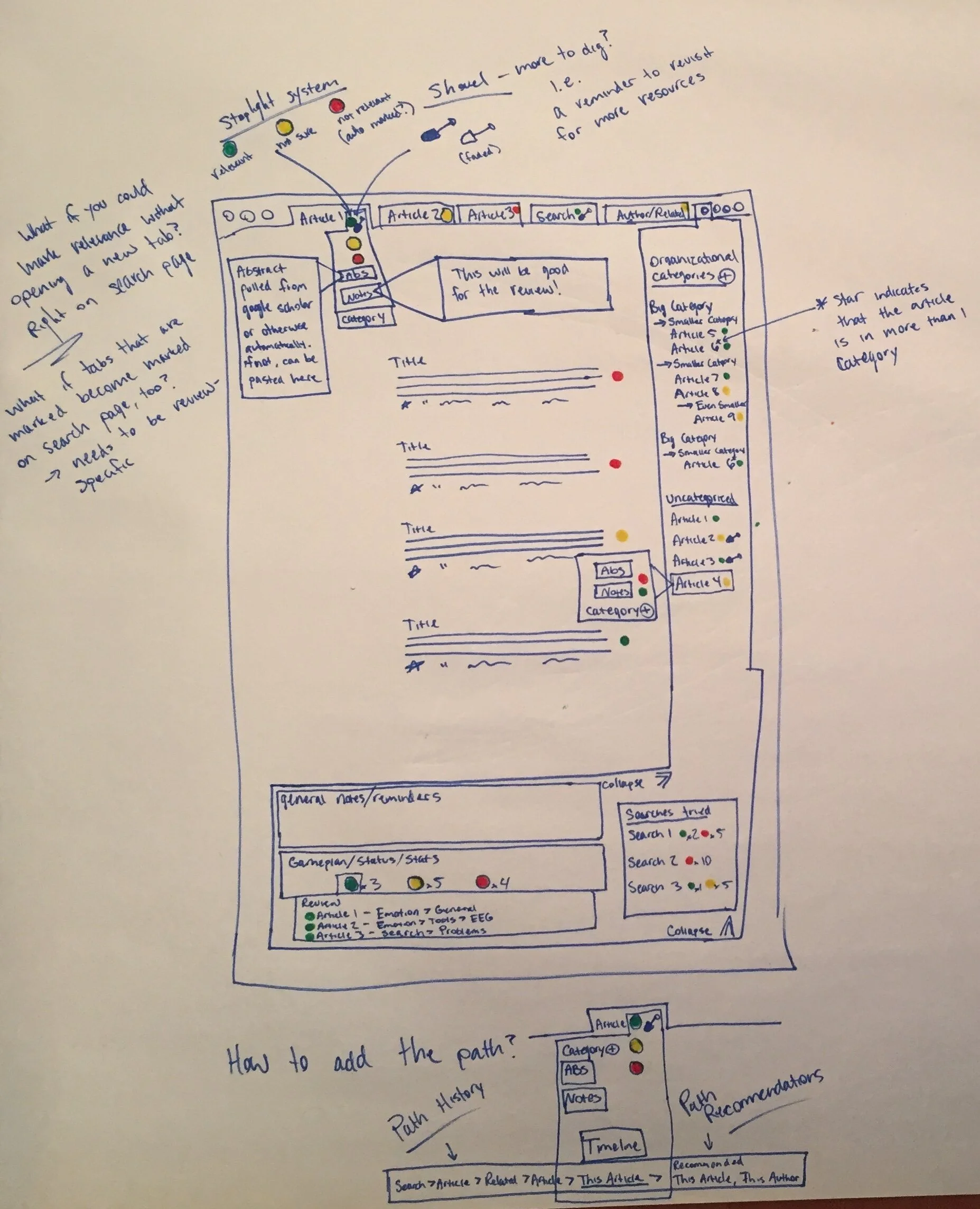project alice:
complex exploratory search
Project alice was born out of a common frustration: complex search interfaces (think— google scholar) that fail to support the cognitive needs of their users.
In this project, we conducted a 6-month participatory design engagement to identify the problems experienced during academic exploratory search and to develop solutions to address them.
Project ALICE is named as such as a call to the feeling of “falling down a rabbit hole” during exploratory search. Its methods have thus far included survey, participatory design, activity-recording, and browser-logging in order to understand a common exploratory activity—literature review. Our results offer a conceptual reformulation of “the problem of exploratory search” based on the impoverished nature of modern web environments.
We then structured solutions based on our reformulated problem space in order to address the deeply cognitive nature of the challenges at hand.
Note: this research is currently pending publication, and thus this project page lacks intimate details on results and proposed solutions.
Fig. 1: My first solution sketch. Used primarily as a brainstorming device, I went for features over simplicity. After completion, it was clear that my thinking was far too linear. I needed to dig deeper and break away from any preconceived notion on what a search interface should look like.
Note: this overview image is intentionally difficult to read.
Fig. 2: My next iteration, using Figma. In this stage, I was exploring alternative visualizations for search results and supportive organization structures to promote sensemaking. Built into the interface were features designed to assist with cognitive overload, information anxiety, and re-contextualization.
This project is currently in development with aspects submitted for publication. If you are looking to get involved, please let me know!



